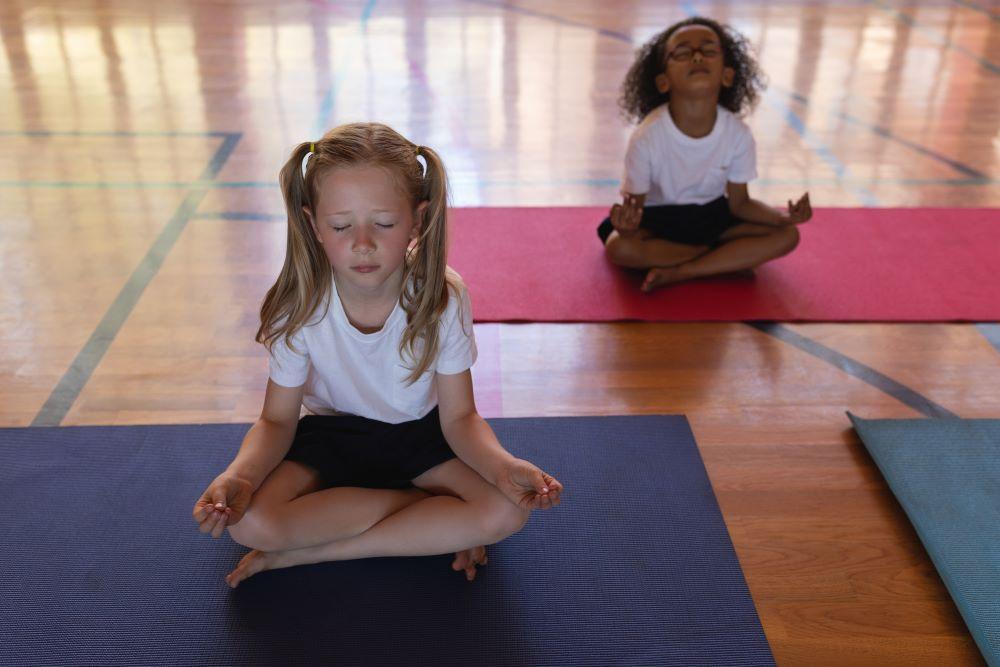After months of isolation, uncertainty, and disrupted routines, it’s no surprise that many children were nervous about returning to school following the pandemic. For some, the classroom — once a familiar and structured space — suddenly felt overwhelming. The return to full classrooms, strict routines, and academic expectations was a significant transition, especially after extended periods of home learning with limited contact with friends and family. As pupils walked back through school gates, teachers and leaders across the country faced an immense dual challenge: getting the curriculum back on track while also tending to the emotional and mental well-being of every child in their care. And it was never just about the pupils — understanding what families had been through became essential to truly supporting the children in front of them.

Five years on, we’re still feeling the affects. Many pupils are carrying hidden burdens, and schools continue to play a critical role in identifying and addressing these challenges. In our latest Generation Catch-up 2.0 report, we asked school leaders to reflect on the well-being landscape today — and share what’s working in their settings.
Here are six thoughtful, tried-and-tested approaches from leaders who are putting pupil well-being at the heart of school life.
1. Build a calm, focused learning culture
Creating a positive, structured environment where learning is the norm helps children feel safe — and helps staff quickly identify when something isn’t right.
Peter Huges,CEO of Mossbourne Federation puts it simply: “If the environment is calm and focused, you can spot the pupil who needs help. In a noisy, chaotic space, those signs are easily missed.”
The culture of a school matters — not just for behaviour and academic success, but as a foundation for emotional support.
2. Train the right people to spot the signs
At Mossbourne Federation, pupil well-being is woven into the pastoral structure. Each Head of Year, SENDCo and senior leader is also a trained Designated Safeguarding Lead — with specific training in mental health. This ensures that every year group has someone who knows the pupils well and is equipped to respond when they need support.
Having trained professionals at the heart of pastoral care means that interventions can be timely, sensitive and effective — with the right people working together to support each child holistically.
3. Integrate mindfulness into the school day
For Shirestone Academy, emotional resilience is a key part of the school day. Using the My Happy Mind programme, pupils are guided through mindfulness practices such as “happy breathing” and journaling — small, daily rituals that help children reflect, self-regulate and understand their emotions.
Journals, in particular, offer teachers and senior leaders a valuable window into how pupils are really feeling — helping staff respond more quickly and appropriately to emerging issues.
4. Work with trusted external partners
Collaboration is key. At Shirestone Academy, schools work with Compass, a mental health and well-being charity that delivers sessions to children, parents, carers and families. What’s unique is how visible and accessible Compass is — attending school events and encouraging self-referral, so that support feels familiar and stigma-free.
Bringing in external expertise helps schools expand their capacity and ensures families get the wraparound support they may need beyond the school gates.
5. Support families, not just pupils
Mental health challenges don’t stop at the school gate. Many parents continue to face job insecurity, financial pressure, or personal well-being struggles of their own. Leaders at ONE Academy Trust recognise that supporting families is a crucial part of helping pupils thrive.
They run workshops for parents who may need extra guidance or support, understanding that a calmer, more secure home life often leads to more settled and resilient pupils.
6. Create a gentle start to the day
Sometimes, wellbeing is about the little things — like how a child begins their day. At ONE Academy Trust, breakfast clubs are seen not just as a place to eat, but as a “runway into school.”
As Graham Boyd explains: “We try to give them opportunities to succeed, rather than opportunities to fail. That starts with creating an environment where they feel ready and able to learn.”
A continued commitment to well-being
Five years on from the first lockdown, pupil well-being remains one of the most important — and complex — priorities in schools. But it’s also where some of the most meaningful work is being done.
Whether through mindfulness, breakfast clubs, parental support or calm school cultures, the message is clear: schools are still adapting, still learning, and still standing alongside their pupils every step of the way.
To explore more reflections and strategies from over 9,000 educators, read our full Generation Catch-up 2.0 report here.

